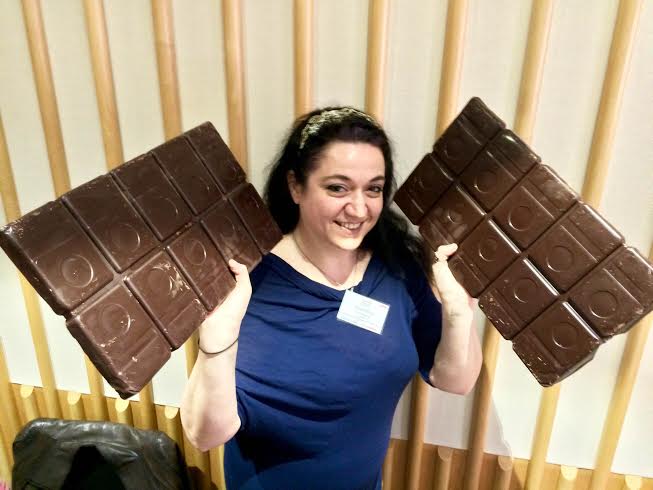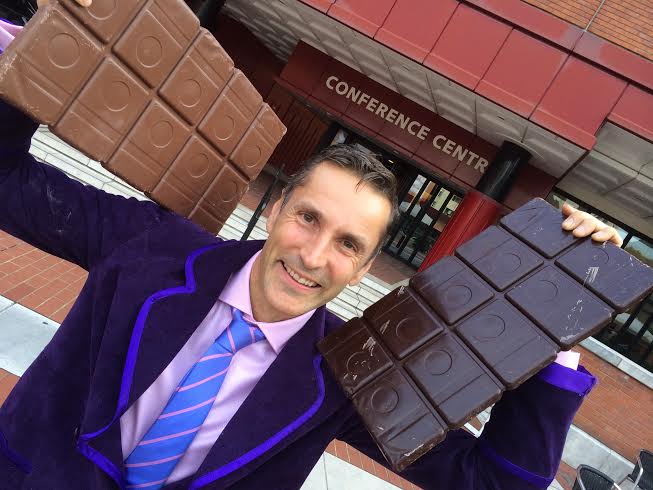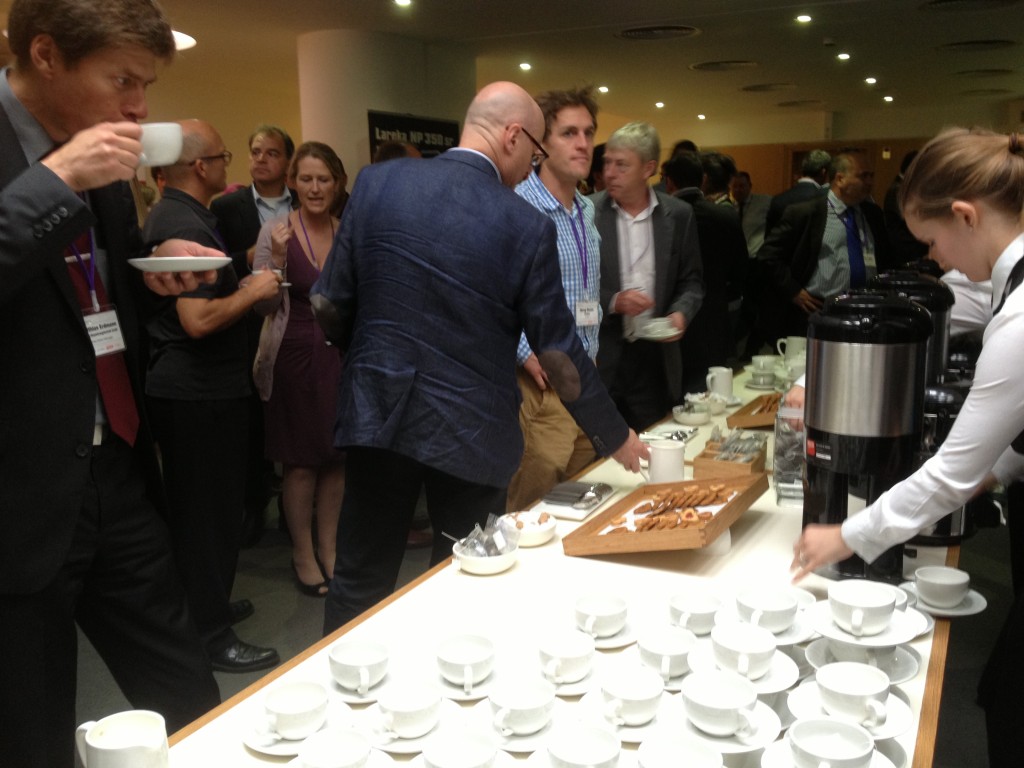I was lucky to be invited to attend the Kennedy’s World Chocolate Forum on Oct 2nd 2014 at the London British Library. Running for the past three years, it is the only Summit in the world that has been created to discuss chocolate. 300 producers attend the event and some are from the biggest companies in the world.

It was a truly extraordinary experience trying different type of chocolates and finding out about choices regarding their production.
Angus Kennedy, founder of the event, born into a publishing family that was already dealing with confectionary, is a very spiritually driven intellectual; he believes the soul will always lead you to what you are meant to do in the end. His major passion, beside chocolate of course, lies in writing and he has already written lots of books. He admits: “The best jobs are always the ones you create for yourself and not certainly the ones, you get offered!” A lot of people contributing to the production of chocolate are indeed entrepreneurs involved in creative stuff. Angus Kennedy, honestly admitted, despite every exams he took he failed, he became a prolific writer. He loves children and is aware of many issues that are often not addressed to make things better for them. He is currently writing a children’s book and, if he would ever become famous as a children writer, it would be quite ironic for children to get inspiration from.
Mr Kennedy is aware it is always extremely hard when you set up a new business but he remarks: ”Success is the ability to fail continuously and be happy every time because one day you will succeed”. He was very close to achieve his biggest dream, having a TV programme about chocolate, but it did not work out in the end. Life is made of many knock backs but it is important to have the ability to be happy with failure and proceed even when keeping on failing. His motto: “You can succeed all the times but one day you will fail and you can fail all the times but one day you will succeed”.
His latest published book: ‘Good Reasons for Bad Things’ [reviewed here on Frost] is made of 222 maxims such as: “I don’t buy chocolate to stay healthy but I stay healthy so that I can eat chocolate”. Mr Kennedy, which is into tarots, numerologist, universalism, etc. He started writing maxims as he kept on waking up in the middle of the night at 2:22am; he looked into the meaning behind it and this is how he has 222 maxims in the book. As it happened to him waking up at the same time every night, he realised to have been chosen to write about things as if inspired by external forces. He loves writing to make people laugh.
As I randomly open his latest book, I read a maxim: “One must not be too friendly to the English, they are not used to it and the shock can be highly damaging to our health.” And he admits: “Rude!” I have a good laugh at it and certainly do not let that bother my interview proceedings!
He remarks, there has got to be a TV programme about chocolate one day because chocolate is a product that is the expression of freedom and represents a moment of pleasure. Moments of freedoms are very rare nowadays in the society we live in where we are more and more concerned about time and making money when, at least over the weekend, we should definitely be taking time away to relax and let go the week past behind. And this is where came the idea of his blog Friday Light, which quickly raised from 50 readers to 13.000 ones! Really I could not say Mr Kennedy does not come up with the most interesting ideas!
Without denying chocolate is the second most fattening product in the world together with butter it has yet to be understood the more cocoa butter you take out during the chocolate making process, the less it becomes chocolate, so there is no point even conceiving a healthy chocolate… it will be like making wine without grapes!
The most heated argument at the forum was regarding the global transit which is going to happen within the next 5-10 years; China, South Africa, Brazil, India and Russia markets
will be all doubling in size, which means there is not going to be much cocoa left for Europe. According to this trend for 2020 it will be needed to increase the supply of cocoa for Europe and the producers are discussing where it is possible to invest some money to increment some farming in Ivory Coast ideally accordingly to fair trade standards. It has been argumented the only problem with fair trade production is often the increased costs attached to it since the majority of consumers tend to go for cheaper products rather than the fair trade ones but of course the issue has yet to be raised to support, for what it is possible, the importance and fairness of acting within the fair trade production standards.
Written by Paola Berta






